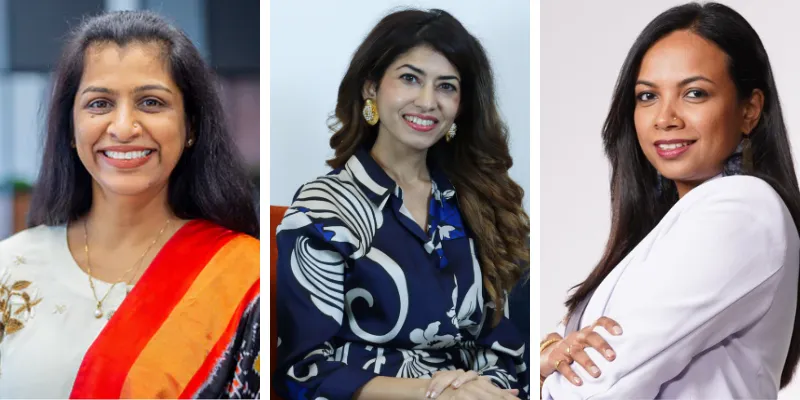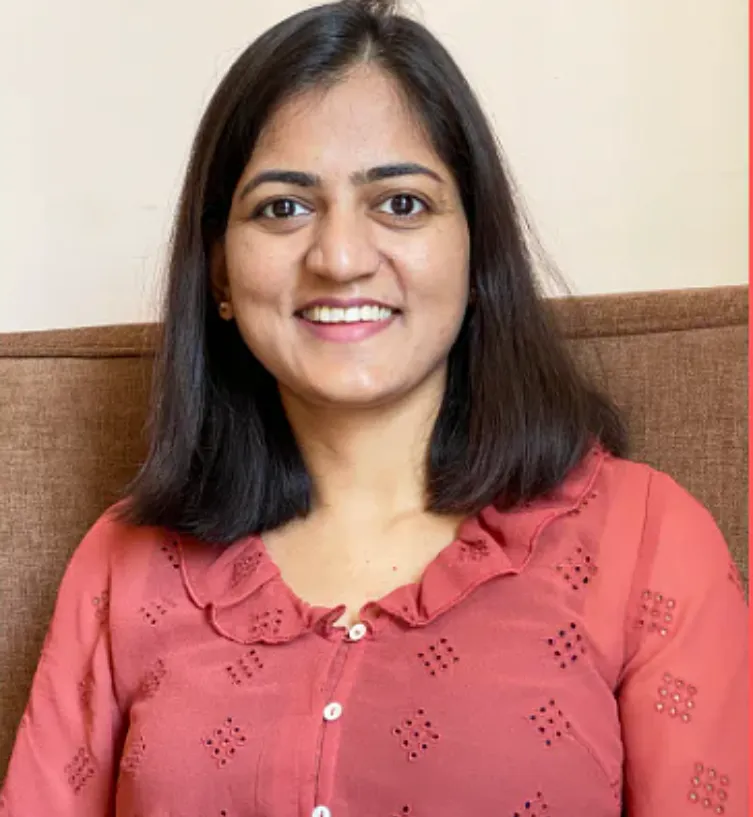What do women entrepreneurs want? Funding, yes, but much more
Capital is an important element for women entrepreneurs to start up and scale, but they also need access to networking, mentorship programmes, role models and an ecosystem of all-round support. HerStory speaks with women entrepreneurs, the VC community, incubators, and accelerators to learn more.
Last week, at a panel discussion on Funding for Sustainable Growth: Let’s Cut to the Chase, organised by Yuukke, a leading platform for women, Sreedevi Devireddy, VP, Startup Ecosystem, highlighted the need to bring women entrepreneurs from Tier II to Tier III cities to the forefront.
Sreedevi, also the founding CEO of SR Innovation Exchange, the technology business incubator of SR University, Warangal, said, “The intelligence quotient in small towns is high. We need better networking and communication, especially in regional languages, to unleash the power of Bharat.”
She recommended that posters of entrepreneurship schemes and programmes be put up in every panchayat to attract more talent, especially women.

Deepthi Ravula, Swati Bhargava and Ankita Vashistha
Capital may be one of the top priorities for a woman entrepreneur to start up and scale, but there are other important factors at play. These include avenues to network, hiring the right team, access to mentorship and training programmes, continuous capacity-building sessions, the presence of strong role models, and more.
The role of incubators and accelerators is vital to build companies from the ground up or to scale, thereby providing a strong ecosystem of all-round support.
Funding, and more
Swati Bhargava, Co-founder of and , believes there is no difference in what founders expect from investors based on gender.
“While the most important thing is capital, providing founders with business connections that enable productive partnerships for the growth of the business is equally important. Similarly, invitations to events that foster connections can offer a lot of value. It helps immensely if investors can plug us into networks they are a part of. Opportunities that will help build our brand, including media coverage, speaking engagements, etc are also essential,” she says.
On the other side of the equation is Ankita Vashistha, a venture capitalist and Founder of StrongHer Ventures who has worked with over 50 startups and mentored many more.
She cites the example of two women-led companies from her portfolio, where she has gone beyond funding to ensure growth.
J2W – JoulestoWatts is a multimillion-dollar HR tech and talent staffing platform led by Priti Sawant.
“We came in as the lead and first investor and are also on the board. We supported the company scale to almost 5,000 employees, including contract staff. We also helped with global market connects as they expanded from India to the Philippines, Dubai, Singapore, and the US through our global innovation network and bringing on Fortune 500 enterprise clients. We unlocked our networks and access globally to help them scale. We help them think about their leadership, advisor board, investors, and go-to-market as they scale,” she says.
Ankita also works closely with Hena Mehta and Dipika Krishnan, Co-founders of , a platform that powers financial independence for Indian women.
“We unlock our global founders women community for them to engage with and launch their products. Through our corporate B2B partnerships we help them open B2B channels,” she adds.
In 2021, Surbhi Jain launched Neend, a sleep management app that offers stories, soothing sleep sounds, meditation, and more in regional languages to unwind and sleep. This year, it raised $700,000 in a pre-seed round led by Better Capital.
“We keep reaching out to our investors wherever we are stuck. Our investors are not just enabling us financially but have been pillars of support too. They have provided valuable strategic guidance, helped us with hiring prospects, and most importantly allowed us to tap into their network,” Surbhi says.
However, she is of the opinion that women entrepreneurs don’t require any additional help.
“As a society, we need to stop creating additional obstacles in their path. When allowed the freedom to tap into their potential, women are just as equipped to create value for everyone in the ecosystem. In fact, I even think a woman’s early socialisation gives her an edge at many things required to build and scale a business - such as multitasking, building relationships, and having empathy,” she explains.
Ritika Amit Kumar, Co-founder & CEO, STEM Metaverse, is thankful for the opportunities and mentorship she has received from Startup India, IIT Delhi, the Wee Foundation, and many others.
“Entrepreneurship is a lonely path and I feel constant support, guidance, and mentoring is important for all entrepreneurs, irrespective of gender,” she says.
Structured support
According to Deepthi Ravula, CEO of WE Hub, India’s first state-led incubator to foster and promote women’s entrepreneurship from Telangana, women entrepreneurs could benefit from more structured learning support.
“They need support in financial literacy and managing money, business development, building profitability and innovation into their business models, and information, knowledge, and application of business and technology tools to scale,” she elaborates.
She also emphasises the need to leverage technology so that women can have better access to markets, finance, and knowledge.
“Accessibility barriers that many women currently face can be reduced by using intuitive technology platforms that educate and empower women to learn, use tools, network, connect, and access funding,” she says.
Divyanshi, a master’s student at women’s university Banasthali Vidyapith, was selected in the WOMENpreneur programme of AIC Banasthali. Her startup, Ujore Nature, develops organic fish feed to reduce mortality rates in aquaculture.
“I have received every kind of support we required for our startup, including mentoring, networking, exposure to other opportunities, and one-to-one sessions for specific mentoring during the incubation programme,” she says.
After incubation, Divyanshi was able to identify a specific market and core customer size. “We are now connected with more than 250 fish farmers in Haryana and Rajasthan, and expanding to southern India with customers in Hyderabad,” she tells HerStory.
Mitti Café’s Alina Alam banks on the continuous support of IIM-Bangalore’s NSRCEL, which has helped the chain of cafes operated by people with physical and intellectual disabilities sustain, especially during the pandemic.
Along with grant support, Alina shares that the NSRCEL network helped Mitti to develop and implement a disability-friendly workplace design, standardised menus, and customised equipment in its cafes.
Deshpande Startups recently onboarded 30-women led startups in a 16-week cohort-driven, structured, high-touch market and investment-focused programme, with the focus of helping them to accelerate their growth, improve existing processes, and explore new business opportunities. It also involved intense mentoring, intervention in the area of constraint, and provided access to resources to scale the business rapidly.
Societal challenges

Surbhi Jain
Swati points out a created narrative around how businesses run by women can’t be successful.
“People frequently assume that polite women are weak and uncompetitive; strong women are harsh or unaccommodating. A woman’s entire existence in society is planned from the time of her birth to fulfil one purpose: marriage. Social obstacles rarely stop. These difficulties also translate into scaling your business, from partnerships to getting the right set of vendors,” she says.
Swati says though fighting these can be difficult and exhausting, the tenacity with which you forge ahead that counts. Her advice is not to pay attention to these stereotypes; rather, concentrate on your core goals and keep moving forward.
Deepti believes gender bias and societal conditioning also becomes a barrier.
“We need to create more role models who constantly challenge existing norms. WE Hub also works at creating these mechanisms, so women entrepreneurs receive the required advocacy from their ecosystem to become changemakers and champions,” she says.
Surbhi concurs with Swati and says there can be a lot of resistance from family for choosing a ‘risky’ path over a conventional career option.
“I’ve personally had to tackle a lot of hard conversations with some of my dear ones, who thought I should get married sooner instead of hustling at Neend! If the woman manages to cross these barriers and start her entrepreneurial journey, she faces similar resistance within the professional ecosystem.
“Biases against women often result in them not being taken seriously - be it for hiring, fund-raising, or selling a product,” she says.
Surbhi puts it very succinctly.
“The change is coming, but the speed is slow. It's only recently that women founders have come into play in big numbers, and their stories are still unfolding.”
Edited by Teja Lele







